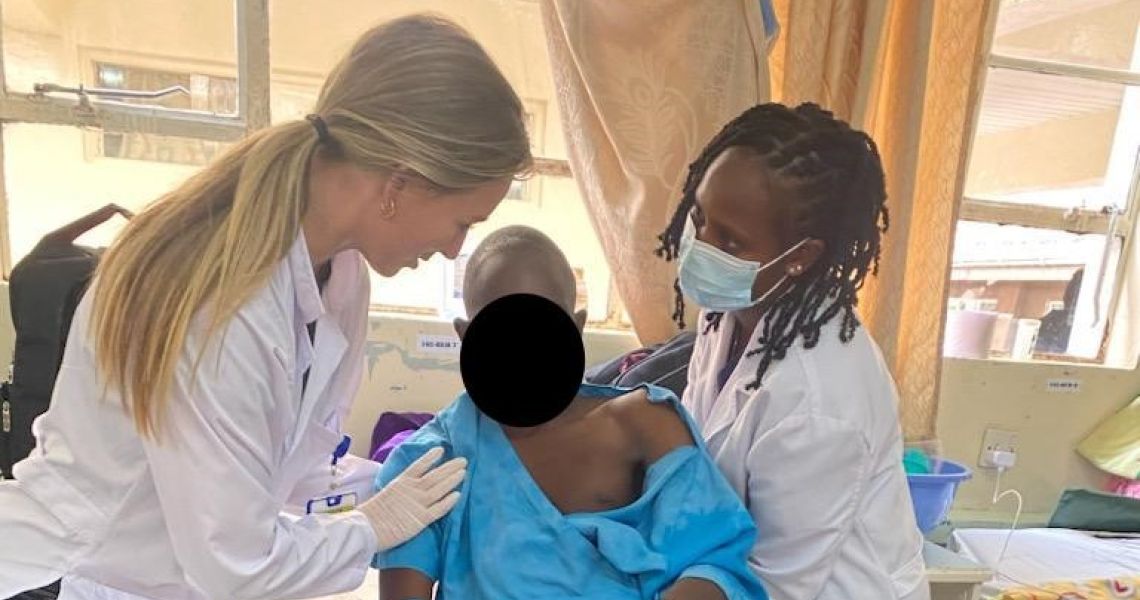The ink was barely dry on Meghan Henderson’s doctorate of physical therapy (DPT) degree when the George Washington University (GW) School of Medicine and Health Sciences graduate travelled to Kenya to put her new skills in practice.
Henderson, D.P.T. ’23, volunteered as a newly licensed physical therapist (PT) at the Tenwek Hospital in Bomet, Kenya, in August this year, just a couple months after graduating from the GW DPT program. Henderson arrived in Kenya with a connection at the hospital: her brother-in-law is a neurosurgeon there.
“GW has a service-based approach to its students with the pro bono clinic and the empathetic approach that we take to care,” Henderson said. “It was cool putting a lot of what I learned into practice.”
The patients that Henderson saw ranged from children to adults and most were receiving rehabilitation services after surgery. There are few health care facilities in the area, so there’s a great need for care. Henderson said PTs in Kenya work in both outpatient and inpatient clinics, and there’s tremendous demand and responsibility placed on them to balance both of those caseloads. In addition to that balancing act, PTs also contend with less help and equipment than what most western hospitals have on hand, she said. Henderson emphasized that teamwork was critical. “Working together with all the disciplines helped the therapists understand more about the surgical aspects of care and vice versa,” she added.
When asked if there was anything that surprised her about health care at the Kenyan hospital compared to what she experienced in the United States, Henderson cited the great distances people travel for care, the more severe patient presentations often seen due to the burden of traveling for health care, and the need to be alert for red flags and to facilitate more dynamic family situations.
One case that stood out for Henderson was an individual who had suffered for five years from tethered spinal cord syndrome, a condition relating to deformation of the spinal cord causing damage to the nervous system. The individual had lost all sensation and motor control of their lower extremities, Henderson recalled. One week following surgery at Tenwek Hospital, sensation began to return to their legs, and they started to wiggle their toes. Henderson joined another PT and an occupational therapist at the hospital to teach the patient how to move their legs and stand up using a walker for the first time in five years. Henderson described the experience as extremely powerful and moving. “It had everyone cheering!” she said.
The importance of rehabilitation was Henderson’s favorite take away from her volunteer experience. “The community and lots of different programs rally behind this hospital and provide a lot of assistance,” she said. The emphasis that the community places on the importance of rehabilitation is something Henderson wants to always carry with her.
Henderson is eager to continue sharing her PT skills in underserved communities, and she encourages others to join her in defining where PTs can have an impact in global health care. She recommends taking advantage of volunteering opportunities offered through GW and other groups. She said her experience at GW working with patients in the pro bono clinic helped lead her to the volunteer opportunity in Kenya. She also credits her GW education and its emphasis on service for readying her. “I felt very prepared from our coursework to go out into this scenario that I didn’t know a lot about. It was an awesome opportunity to put everything we learned in school into action,” she added.
